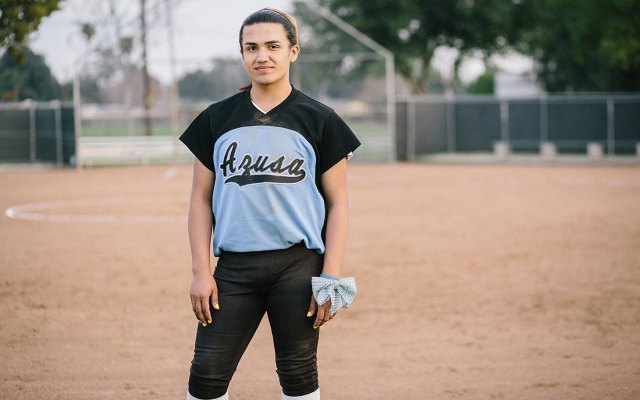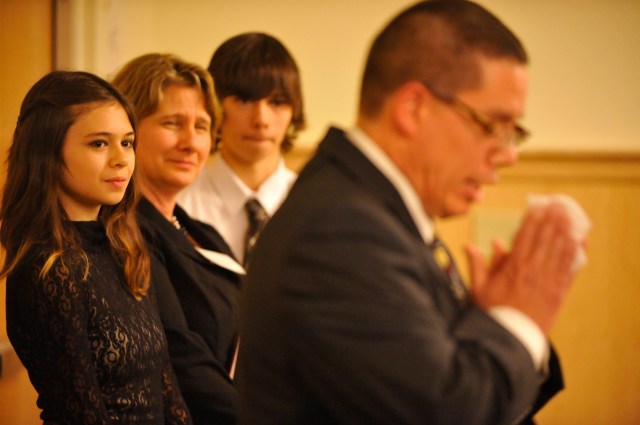One of the issues that has been at the very forefront of the Trans Rights Movement in the last few years has been that of trans students rights. Their rights to use the correct bathrooms and locker rooms, play on the correct sports teams and be in the correct clubs, and simply be able to present as themselves while in school have been the subject of many lawsuits and city council meetings. In some cases, like that of Coy Mathis in Colorado and California’s Trans Students Rights Bill, we’re winning huge victories, but in other cases, things are going a little more slowly. The recent steps in Maine, Minnesota and Virginia to protect trans students, while largely being positive, still have a ways to go.

Pat Cordova-Goff, a trans girl playing softball in California via Aljazeera America
In the case of the state of Maine, which is probably the most positive, we finally have closure in the case of Nicole Maines, a seventeen year old trans girl who, back in 2009, sued the Orono School District after she was forced to use a staff restroom rather than one available for students. The grandfather of a fellow student complained that Maines was using the girls’ restroom in her elementary school and the school’s reaction was to force her to use a seperate bathroom.
Thankfully, the Maine Supreme Judicial Court ruled that the school district violated Maine’s state Human Rights Act. As a result, not only does the highest court in the state say that trans people have the right to use the correct bathroom, but the Maines family was awarded $75,000 in damages. Finally, after five years, Maines has some comfort and peace of mind.

Nicole Maines (far left) with her family listening to her father give a speech. photo via Bangor Daily News
Things aren’t such clear-cut victories in Virginia or Minnesota. In the case of the Virginia High School League, they voted unanimously to approve a new trans student athlete policy that would allow trans students to participate in the correct sports – mostly. In order to even begin trying out for sports, trans athletes must prove that they are in fact, trans, and not just pretending “for the purpose of gaining an unfair advantage in competitive athletics.” Because we’re living the classic Rodney Dangerfield movie Ladybugs.
The hoops that a trans Virginian must jump through include submitting a written document saying they are trans, one or two letters from family, friends or teachers confirming they’re trans, a list of all treatments and medications they’ve received and are taking and written proof from a health-care professional. Then the principal combines these things with the student’s school records, adds their opinion on if the student is really trans and passes it on to a three-member committee who will determine eligibility and pass their recommendation along to the Virginia High School League Executive Director. The Executive Director then approves the request or if they don’t, the student can appeal to the Executive Committee who will consider it for ten days and then vote on how trans you are.
Minnesota’s new policy is, unfortunately, very similar in how difficult the process is for trans students. Their new policy, starting in the 2015-2016 school year, allows for trans students to participate, but only after they go through a process proving they are really trans. Religious schools are also exempt. While the policy does state that trans students should have access to all the correct bathrooms and locker rooms, it clearly still has issues.

Zeam Porter, a gender non-conforming former athlete testifies in Minnesota. via Washington Post
A Minnesota student must submit their school transcript and registration, written statements from themselves and their parents or legal guardians affirming their gender, other statements from friends family or teachers saying that the student’s “actions, attitudes, dress and manner” show that they are sincere in being trans, a written statement from a health-care professional and any other evidence that they are trans that they think might help them. After an Independent Hearing Officer looks at these documents, they’re also allowed to talk to gender identity “experts,” the Minnesota Department of Education or others to make sure everything looks right. Then the student has to wait until the next scheduled Minnesota State High School League meeting to find out if the Board of Directors accepts them.
I’m not saying these policies are all bad. Obviously I’m elated that trans students will be able to participate in the sports and clubs they deserve to. Trans students deserve to have the full high school experience as they desire it. And I definitely applaud the school districts for not giving in to hate groups who complained at meetings using scare tactics and fake science and took out adds, like the ones in Minnesota that declared this policy “the end of girls’ sports.”
The unfortunate thing is that trans students aren’t given the benefit of the doubt like cis athletes are. Can you imagine if a cis girl had to prove her gender with piles of paperwork and statements from their parents, teachers and friends saying that she’s a girl and her “actions, attitudes, dress and manner” are consistent with those of a girl, just to play basketball or soccer or be a cheerleader? Virginia, Maine and Minnesota all definitely took positive steps forward, lets hope they don’t stop there.



It’s like they’re trying to get security clearance. Cis passing clearance?
By the way, I love that the girl from Maine is named Maines. Anyone?
You request all that documentation from people who know the student best AND from medical professionals that are responsible for making a diagnosis and providing medical treatment, but the school folks are the last word on this?
Gah this frustrates me so much. Really, Virginia? This is progress? I mean I guess it’s better than nothing but only by degrees… Yay for Maine(s), though!
Great article, Mey!
Gee .. isn’t it great that ‘actions, attitudes, dress, and manner’ are so uniform for each gender that they can be used as a measuring stick of one’s sincerity in knowing who they are? The words truly fail me and that is a rarity. : /